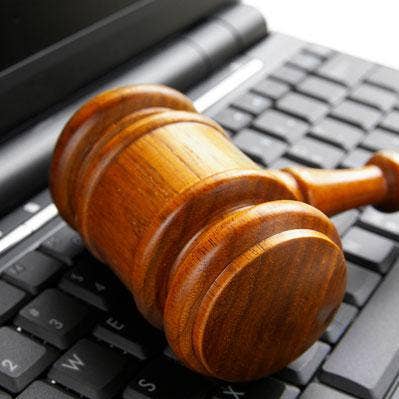Oracle Tells Supreme Court Google Copyright Breach Knocked It Out Of Smartphone Market

Oracle asked the U.S. Supreme Court on Wednesday to not review an appellate court's decision finding Google violated Oracle's copyright of the Java platform when building the Android mobile operating system.
In that opposition brief, Oracle's attorneys said Google's copyright violation shut Oracle, the Java platform owner, out of the emerging smartphone market, causing incalculable harm to its business.
The complex case pitting two Silicon Valley giants against each other has raged on since 2010, and already saw many twists and turns before a jury found in favor of Google only to have that decision reversed by a circuit court. That prompted Google's appeal to the nation's highest court.
Oracle notes Google had previously asked for a writ of certiorari—the legal term for review by the high court—in 2015 without success in an earlier phase of the case, and the company argues nothing has changed in the time since.
[Related: Oracle Cloud Exec Amit Zavery Headed For Google]
Oracle believes Google destroyed its hopes of competing as a smartphone platform developer with the Java platform, which enables development and execution of software written in Java, including through APIs that access a vast software library. The lawsuit alleged Google copied those APIs without a proper license.
Java was developed at Sun Microsystems, which Oracle acquired in 2010.
"Google’s theory is that, having invested all those resources to create a program popular with platform developers and app programmers alike, Oracle should be required to let a competitor copy its code so that it can coopt the fan base to create its own best-selling sequel," Oracle's brief states.
And where Google has repeatedly argued allowing companies to copyright programming interfaces would have a chilling effect on the industry, Oracle told the court software development has not "suffered the devastating impact Google predicted; the industry is doing better than ever."
Oracle spent years and hundreds of millions of dollars writing the Java framework, a "blockbuster work" allowing developers to build apps they could run anywhere.
Google refused Oracle's offer to license the software, then copied the "most recognizable" parts to build a competing platform, "for the express purpose of capturing Oracle’s fan base.
"Naturally, it inflicted incalculable market harm on Oracle..
Google "faced an existential threat" back in 2005 when it saw mobile phone users weren't using its Search engine. The Mountain View, Calif-based Internet giant launched a rapid effort to develop a mobile platform, and realized success involved attracting Java developers.
Java licenses are free to developers, but companies incorporating the technology into their platforms are required to pay, Oracle said.
But Google rejected a deal for the proper Oracle license because it didn't want to meet Oracle's demands for Java compatibility—it didn't want Android apps to run on other platforms, Oracle said in the brief.
That strategy ultimately prevented Oracle from licensing and competing in the developing smartphone market.
In January, Google again petitioned the nation's highest court to help settle the long-running dispute. The case has been remanded by a Circuit court to go back to a lower court for a trial just to establish how much Google owes Oracle for the infringement. The trial court previously ruled in Google's favor before the Circuit judge reversed that decision.
Google did not immediately reply to a request for comment on the case, but the tech giant has steadily maintained its use of Java falls under fair use protections and that Oracle shouldn't be able to copyright Java's application programming interfaces (APIs). Google has also argued the question of how copyright law applies to software interfaces is unsettled, and of vital importance to the industry.
"The lower courts are badly in need of guidance on how to apply the fair-use doctrine in the context of computer code," Google said in its petition to the U.S. Supreme court.
If previous legal rulings are allowed to stand, they "will upend the longstanding expectation of software developers that they are free to use existing software interfaces to build new computer programs," Google argued. That will "undermine both competition and innovation."
Oracle initially sought $9 billion when it filed the lawsuit in 2010.
Earlier in the case, a federal judge ruled that Java's APIs couldn't be copyrighted at all, absolving Google of any liability before the case was even presented to a jury. A circuit judge then reversed the lower court and sent the case back for trial.
The case has divided the tech community.
Hewlett-Packard, Red Hat and Yahoo came out on Google's side in 2015, all petitioning the Supreme Court to review the case. They argued it would be tougher for them to do business if APIs could be copyrighted.
Oracle noted in its latest brief that Microsoft has aligned itself with Oracle, along with EMC and NetApp. Those companies warned that Google's position would destabilize the software industry.